The hyena may be Africa’s most maligned and misunderstood species. Widely loathed as mangy, vicious, cowardly, and even evil, its ability to arouse our collective contempt is unmatched among Africa’s mammals. But people who study hyenas for a living say that we’ve got it all wrong; that in spite of their strange and sometimes unsavory habits, hyenas are fascinating, even admirable. It seems they may not be the simpering, sneaky grave robbers of popular lore, after all.
The spotted hyena is the most common large predator in Africa. Chances are you’ll see them on safari, at least in most places. When you do, keep in mind that there is much more to these fascinating and mysterious creatures than meets the eye.
1. Girls rule, by a long shot.
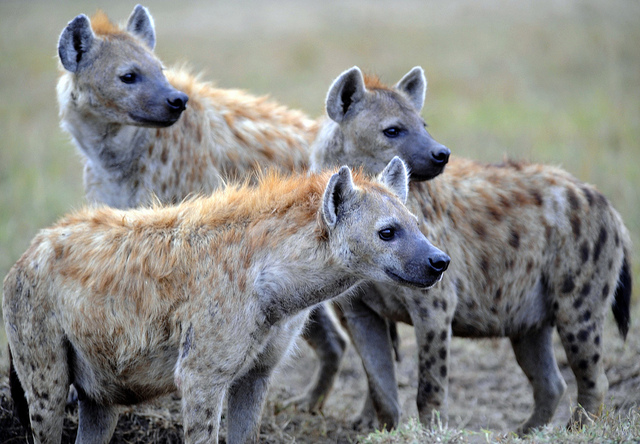
Hyenas at Sundown by RayMorris1 is licensed by CC BY-NC-ND 2.0.
Hyena clans are matriarchies ruled by a single dominant female. Females are significantly larger than males, produce more testosterone, are more aggressive, and even develop “pseudo penises.” The lowest ranking members of a clan are the adult males, who are the last to eat at a communal carcass (provided that there is anything left) and are even forced to endure abuse from juveniles. Females determine which males they mate with and when. Way to go, ladies.
2. They are surprisingly skilled hunters.
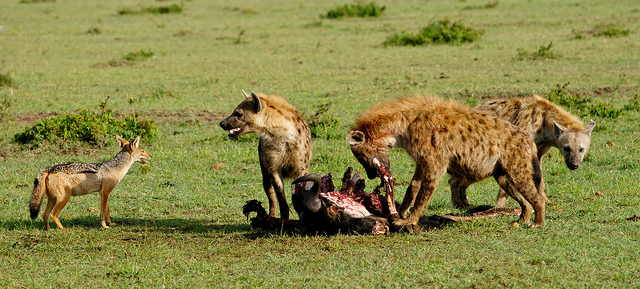
The Opportunists by Roger Smith is licensed by CC BY-NC 2.0.
In spite of their reputation as being cowardly and opportunistic scavengers, spotted hyenas are actually highly effective predators. Researchers say they kill about 95% of their food, which is roughly equivalent to lions, leopards, and cheetahs. In fact, famed wildlife biologist George Schaller, who spent some time studying hyenas, has claimed that lions scavenge more kills from hyenas than the other way around.
3. They occupy a strange and lonely branch on the tree of life.
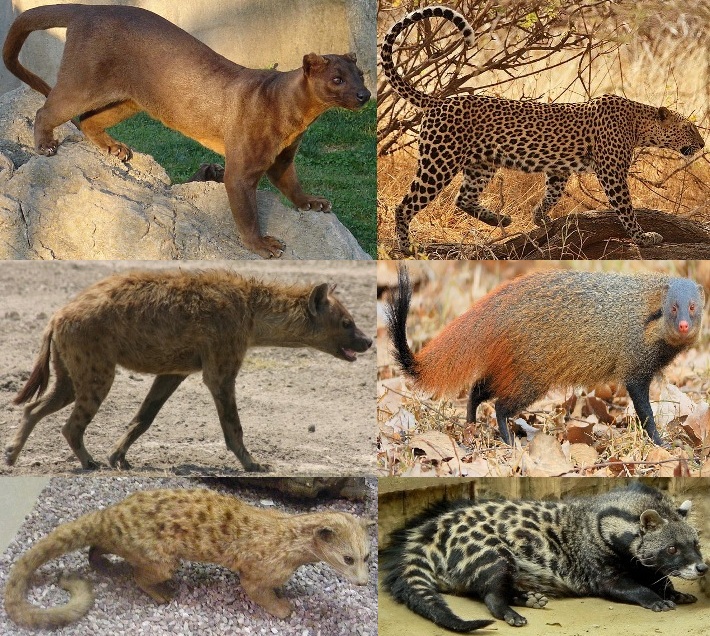
Suborder Feliformia is licensed by CC BY-SA 3.0.
The family Hyaenidae has only four extant species (spotted hyena, brown hyena, striped hyena and aardwolf), which makes it the fifth smallest biological family in the entire order of Carnivora. Because of their somewhat doglike appearance, many people wrongly assume that hyenas are closely related to dogs and wolves. In truth, hyenas belong to the suborder Feliformia, which includes catlike carnivores such as cats, mongooses, and civets.
4. They are great mothers.
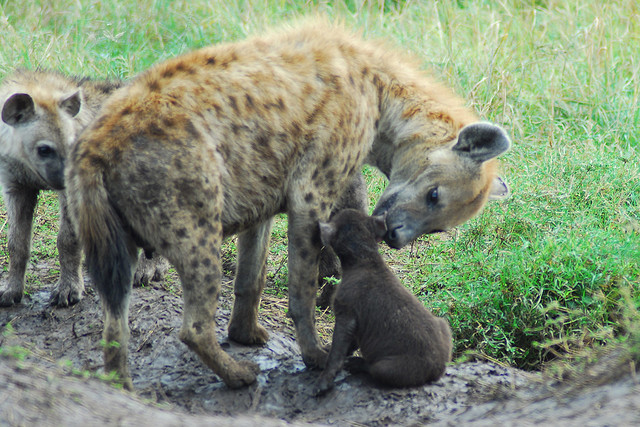
Motherly Love by Louis is licensed by CC BY-ND 2.0.
Hyena mothers are some of the most protective and diligent in the wilds of Africa. They care for their young until the age of three or four. Lions and leopards, by contrast, care for their young for a couple of years at most. Dr. Kay Holekamp, one of the world’s premiere authorities on the spotted hyena, speculates that this may be due to the evolutionary importance of bone crushing in hyena diets. It takes years for a young hyena to develop the incredibly powerful jaws and muscles necessary to feast on bones, necessitating longer maternal oversight. Incidentally, bone crushing may also help explain why females are the dominate sex, according to Holekamp. Females, the theory goes, had to become bigger and stronger than males in order to protect their offspring during this extended period of adolescence.
5. They are as tough as proverbial nails.
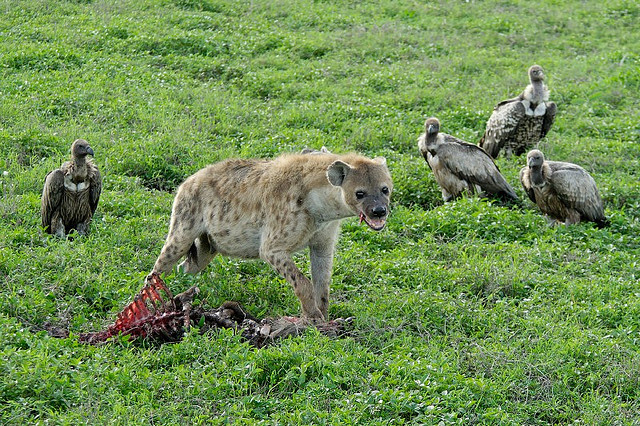
Hyena and Vultures Fighting Over Scraps by David Schenfeld is licensed by CC BY-NC-ND 2.0.
Hyenas seem to be able to eat pretty much anything, no matter how rotten or putrified, without getting sick. They’ve been observed eating months old decaying carcasses that few other animals would come near for fear of getting sick or risking infection. To top off it, hyenas seem to be pretty much immune from the devastating pandemics (rabies for wild dogs, anthrax for grazers, etc.) that affect Africa’s other large mammals.
6. They have powerful enemies.
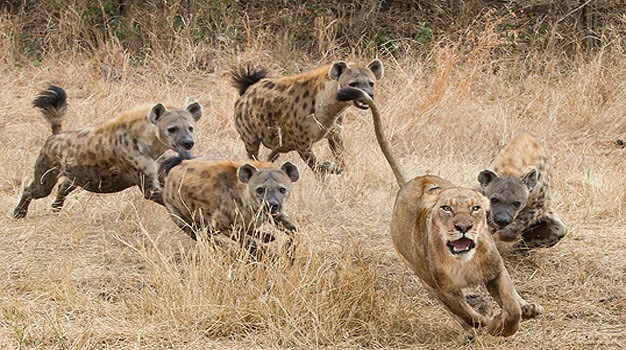
Courtesy of Londolozi.
The spotted hyena faces many dangers, but none, save perhaps humans, is more powerful or potentially lethal than its mortal enemy, the lion. Lions and hyenas seem to share a near pathological hatred for each other. A lion will often go out of its way and expose itself to grave danger for the opportunity to kill a hyena, which it will then refuse to eat. And hyenas will gladly return the favor if given the opportunity, especially when a lion cub is involved.
7. They are incredibly smart and social.
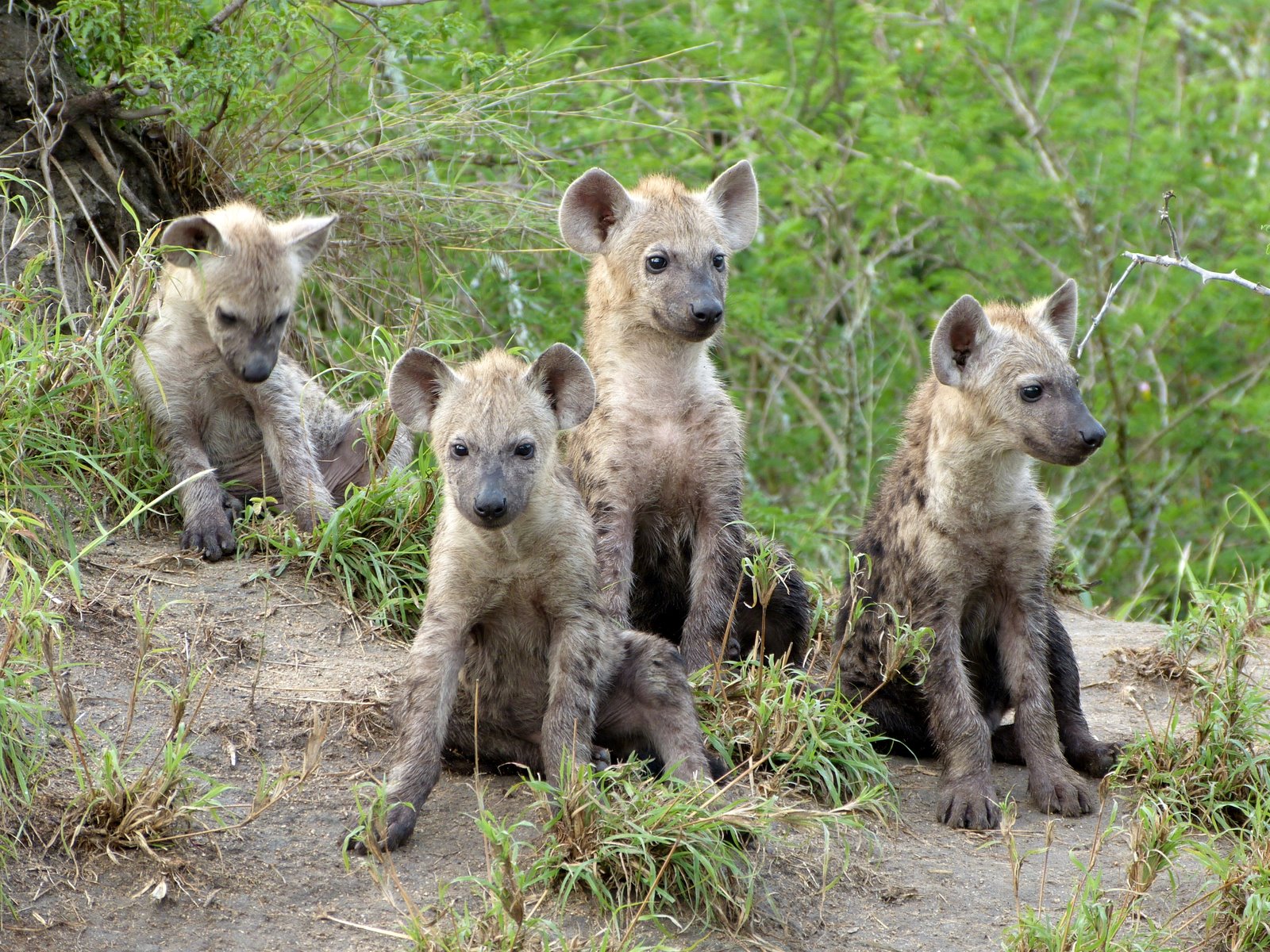
Courtesy of Londolozi.
This may be the most surprising fact of all, given our collective enmity towards the hyena. Holekamp believes that hyenas may be as smart as primates in certain respects. Jane Goodall, a fairly well respected authority on animal intelligence, has even written that, “hyenas are second only to chimpanzees in fascination; they are born clowns, highly individualistic.” Like primates, researchers tell us, spotted hyenas use elaborate vocalizations to express themselves, live in complex societies, form coalitions, and learn to follow rules and respect complicated social hierarchies.
Sources: Smithsonian Magazine, National Geographic, Wikipedia


























Extremely interesting facts about the hyena. They are usually so ugly that they appear to be made up of animal parts that God had leftover after making all the other animals.